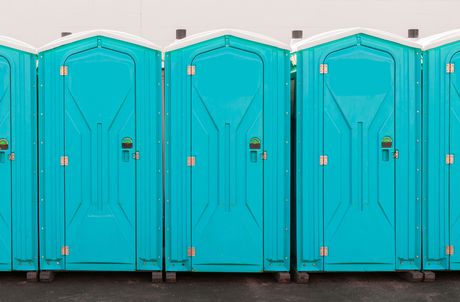Wee will rock you
Wednesday, 04 November, 2015

Step aside Kanye, a urinal that generates its own electricity was one of the biggest crowd-pleasers at Glastonbury Festival 2015 in the UK.
The annual contemporary performing arts Glastonbury Festival is guaranteed to make the headlines. If the performers don’t make it to the front pages, the weather often takes centre stage. Or the toilets. Sometimes both.
In addition to first-time Glastonbury performances by the likes of Lionel Richie and Kanye West, the 2015 festival saw the debut of a remarkable new sanitation facility — a toilet block that needs no external power source to light its cubicles, instead relying on pee power to generate electricity.
Among its potential uses, it is hoped the technology will light cubicles in refugee camps, which are often dark and dangerous places, particularly for women.
The power comes from microbial fuel cell (MFC) stacks inside the toilet block. Live microorganisms inside the fuel cells process the waste to produce electricity.
The invention is the brainchild of Professor Ioannis Ieropoulos, director of the Bristol BioEnergy Centre located in the Bristol Robotics Laboratory (BRL) at the University of the West of England (UWE). The technology builds on EPSRC-supported research.
In 2010, EPSRC awarded a four-year Career Acceleration Fellowship to Professor Ieropoulos to develop his research into MFCs. In the same year, the BRL team launched the third generation of EcoBot, a robot which can power itself by digesting waste. They later proved that MFCs could also power mobile phones.
Professor Ieropoulos said: “The microbial fuel cells work by employing live microbes which feed on urine (fuel) for their own growth and maintenance.
“The MFC is in effect a system which taps a portion of that biochemical energy used for microbial growth and converts that directly into electricity. It can utilise any form of organic waste and turn it into useful energy. What’s more, MFCs are like batteries that do not run out.
“This technology is about as green as it gets, as we do not need to utilise fossil fuels and we are effectively using a waste product that will be in plentiful supply.
“Not only is the technology a means of electricity generation, it can also improve sanitation. The work carried out under the EPSRC grant is primarily focused at developing this technology for the developed world.”
This is no small beer, and not just for festival-goers. Every day, around 38 billion litres of urine are produced by humans and farm animals worldwide.
Interviewed on day one of Glastonbury 2015, Jane Healy, the festival’s sanitation manager, said: “For me, pee power is the future. Everyone at the festival is talking about it. It has created a buzz. Toilets are always a talking point at this festival, but I think this one tops the lot.”
University student Eleanor Kirwan, who spent four days camping at this year’s festival, said: “I think this technology is brilliant. I am a big fan of festivals such as Glastonbury but I’m more than aware of the sometimes detrimental effects that they can have on the environment. It’s great that technology being trialled at the festival could have such a large-scale impact in the future.”
The bespoke toilet block, donated by timber construction experts Dunster House, builds on an earlier project, also in partnership with Oxfam, centred around a urinal strategically situated near the student union bar at UWE. To make the trial as realistic as possible the urinal resembles toilets used in refugee camps by Oxfam.
Andy Bastable, Head of Water and Sanitation at Oxfam, said: “Oxfam is an expert at providing sanitation in disaster zones, and it is always a challenge to light inaccessible areas far from a power supply. This technology is a huge step forward. Living in a refugee camp is hard enough without the added threat of being assaulted in dark places at night. The potential of this invention is huge.”
Professor Ieropoulos said: “One microbial fuel cell costs about £1 to make, and a small unit like the UWE facility could cost as little as £600 to set up, which is a significant bonus as this technology is in theory everlasting.”
The Bill & Melinda Gates Foundation also supports the project, and has awarded BRL two grants totalling US$1.1 million under the Grand Challenges Explorations Scheme to help the team investigate generating electricity from urine and wastewater for countries of the developing world.
A matter of influence: getting over the 'ick' with recycled water
New research shows how social media influencers could help to overcome the resistance to...
Researchers trial magnetic resin to remove PFAS
A magnetic resin invented at The University of Queensland will be trialled at wastewater...
A sustainable approach to increase wastewater recycling
Flinders University research is investigating improved effluent treatment and biosolids removal...








